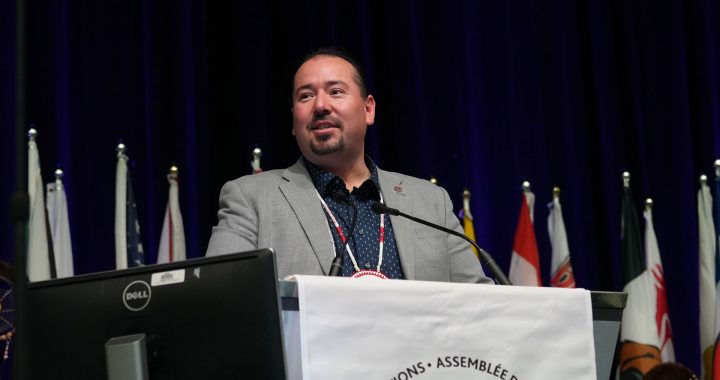When the Native Addictions Council of Manitoba (NACM) was first created in 1972, it became the first Indigenous-run treatment centre of its kind in Canada.
Back then, it was known as the Native Alcoholism Council of Manitoba. But according to the council, more than just the name has changed since it first opened its doors.
“When NACM started, it was rooted in a problem with alcohol. But with drugs and the increase of drugs, we see a lot more people using opioids and crack and meth and really hardcore drugs,” says frontline worker Theresa Crow Spreading His Wings on the latest episode of Face to Face. Today, she says, the opioid and fentanyl crisis is “rampant.”
“To me, that’s an indicator of people’s pain and an indicator of a loss of people’s way in life that they’re using stronger things and whatever they can get their hands on. Part of that opioid crisis is you can find it everywhere and anywhere,” says Crow Spreading His Wings.
According to the Office of the Chief Medical Examiner in Manitoba, 418 people died of a suspected drug related death in 2022.
The COVID-19 pandemic, a worldwide, traumatic experience that isolated people and according to Crow Spreading His Wings, had a huge impact on people prone to addiction.
“I think, part of the residue from that global pandemic is that people started to increase their use. And there was a lot more deaths because people were alone and there wasn’t the resources or access to resources that are already limited and so that increase really isolated people and the crisis that we see that we’re in now from that pandemic,” says Crow Spreading His Wings.
Read More:
Father of man who died in The Pas want changes to how people talk about drugs
Crow Spreading His Wings, who is Blackfoot, was part of the ‘60s Scoop and grew up in the child welfare system.
She says close to 100 per cent of the participants at NACM have been in or had some interaction with the child welfare system.
Since becoming the executive director of NACM, they have taken steps to decolonize the language around addiction.
The organization no longer refers to those in its programs as “clients” or “patients” as the root of those words are disempowering. Instead, the individuals and families they works with are referred to as “relatives”, “participants”, and “applicants.”
The programs offered include bringing in knowledge keepers, sweats, ceremonies and healing camps.
While she admits the 6 weeks program is a “tiny drop in the bucket” for people on their healing journey, she strongly believes connecting people back to their identity and who they are while getting the substance out if there system, can help participants start their journey in a healing way.
It costs $1.2 million to operate the services and the ten beds NACM operates. Crow Spreading His Wings says roughly half of that comes from the province.
Crow Spreading His Wings feels money is often put into the wrong places.
“When we’re spending hundreds of thousands of dollars to change signs which I totally respect in decolonizing some of our city names, that could go to a program. As Indigenous organizations, we get a small pool of money so we’re always competing against each other,” says Crow Spreading His Wings.
“In Manitoba, we have the highest population of Indigenous people so bringing us all to the table and us not having to wrestle or fight for that funding but finding proper supports and conversations that we can help bring healing and resources and supports and beds and safe spaces for people to go. Not on the street.”













